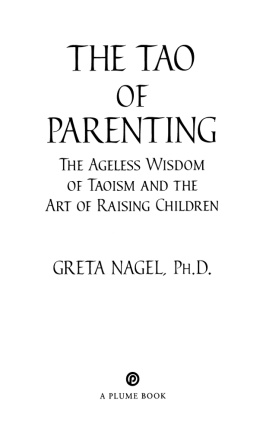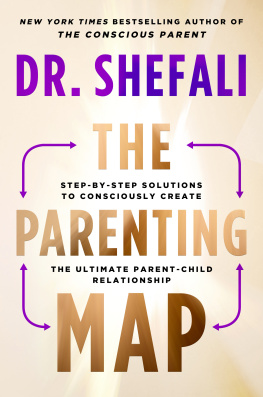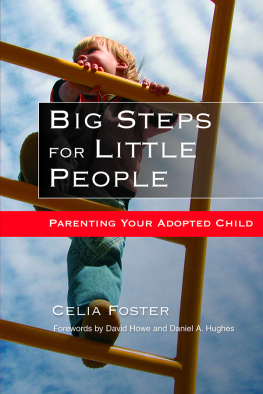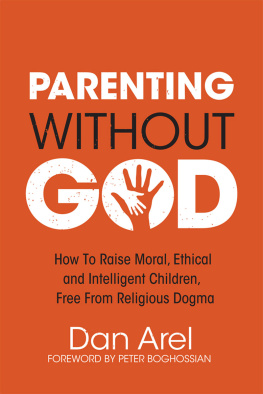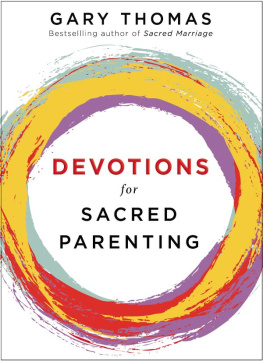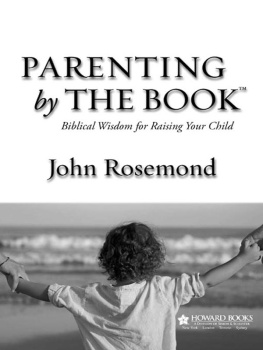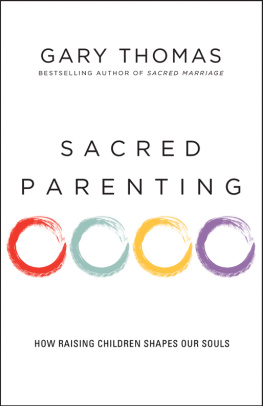Taoism in Action....
Do not think of self.... In the Tao, parents think of their children first. Single mother Mapita Sanchez discusses the choices she made at home and on the job that allowed her to make her twin sons her number one priority.
The material is fleeting; the spiritual is everlasting.... The Tao recognizes that good parenting is not dependent on materialistic values. Dot and John Singletons blended family includes three girls and two boys from previous marriages. In these pages, they describe their family night that made togetherness more valuable than name brand clothes or video games.
Discipline yourself before trying to discipline others.... The Tao says teaching by example is the best lesson. Lew and Margaret Williams, who dont always agree on parenting techniques, wanted their children to love reading, so they read to them daily... and carefully monitored television viewing for all family members, not just the kids.
Follow the middle road; it is the heart of knowing.... Balancing the elements of various philosophies and lifestyles is part of the Way for wise parents. Carl and Kate Flanagan, who hail from different cultural and ethnic backgrounds, explain: When it comes to rules, you cant have too many absolutes. There are always adjustments to be made for each child and set of circumstances.
Sample these valuable lessons... and more from...
The Tao of Parenting
Greta Nagel, Ph.D., author of The Tao of Teaching, received her doctorate in education from San Diego State University and The Claremont Graduate School. She was an elementary and high school teacher for fifteen years and an elementary school principal for eight years before taking a teaching position at California State Polytechnic University. Dr. Nagel also studied Eastern Religion at the School of Theology at Claremont College. She lives with her family in Fullerton, California.
ALSO BY GRETA NAGEL
The Tao of Teaching
PLUME
An imprint of Penguin Random House LLC
375 Hudson Street
New York, New York 10014
Copyright Greta Nagel, 1998
Penguin supports copyright. Copyright fuels creativity, encourages diverse voices, promotes free speech, and creates a vibrant culture. Thank you for buying an authorized edition of this book and for complying with copyright laws by not reproducing, scanning, or distributing any part of it in any form without permission. You are supporting writers and allowing Penguin to continue to publish books for every reader.
The Plume P is a registered trademark.
LIBRARY OF CONGRESS CATALOGING-IN-PUBLICATION DATA:
Nagel, Greta.
The Tao of parenting : the ageless wisdom of Taoism and the art of raising children / Greta Nagel.
p. cm.
ISBN: 978-1-101-66680-7
1. Child rearing. 2. Parenting. 3. Tao. I. Title.
HQ769.N196 1998
649.1dc21
98-19436
Without limiting the rights under copyright reserved above, no part of this publication may be reproduced, stored in or introduced into a retrieval system, or transmitted, in any form, or by any means (electronic, mechanical, photocopying, recording, or otherwise), without the prior written permission of both the copyright owner and the above publisher of this book.
Version_1
To my family,
all of you,
with gratitude forever
for
your love,
your support,
and the many things
you have taught me.
Acknowledgments
Thanks, first of all, to my participant families. Their patience with my questions and their many hours of gracious hospitality will never be forgotten. Although their identities herein are pseudonyms, they have become more real to me as human beings than ever. For their many kindnesses and wonderful insights, I will be grateful always.

I will always appreciate Art Fleming for encouraging me to write this book. He and his wife Rita have been true friends as I have learned to navigate the strange waters of writing for publication. In memoriam I wish to thank Donald I. Fine for his kind and encouraging words.
For their professional and friendly insights I am indebted to Carol Weinstein, Betty Thompson, and Sylvia Maxson. They helped me come to see that this book serves an important need. For their support and encouragement, I shall always remember my sister, Joy Anderson, and my friend Irma Jayaweera. They told me I was a writer. Thanks to Pat Irot, Dixie Shaw, Peggy Hammer, Judy Sowell, Connie Bannon, Donna Padgett, Jean Marie Sohlden Fisher, and Polly Gast for their excitement and enthusiasm. Thanks to Pat Wegner, Gordon Nielsen, and Maria Linder Nielsen, as well as to Darlene Sellers, Terry Kristiansen, Fred and Ellen Lentz, and Sharon Jackson for their support. They helped me to believe in myself. And for their assistance in preparing stages of the manuscript as well as for their insights and encouragement, I am grateful to Janet Vest, Christina Nagel, Paul Nagel, and my talented editor, Jennifer Moore.
And to Glenn, I cant say thank you enough for your patience, your encouragement, and your willingness to let other things go. Imagine, no tuna casserole for many months.
Introduction
I imagine that when you picked up this book, you wondered if it might help you, or someone close to you, to be a better parent. As I talk to parents from many different communities, I learn that they are all very concerned about guiding their children in these challenging times. Every week, we read disturbing news about other peoples children around us. We all wonder what influences will affect our own offspring.
Sometimes, just when we think our own families are home free in this process of child raising, our offspring portray traits that were never part of the plan. We are reminded that traveling lifes roads means taking curves and making turns. We also see how our children are, indeed, our children for the rest of our lives, and we are their parents for the rest of theirs. Most of us knew it wouldnt be easy. We just didnt want it to be so difficult.
Futurists and others who study our changing world tell us that changes of all sorts are occurring more and more rapidly as time progresses. Advances in technology that once took thousands, then hundreds, of years to occur are now happening within only a few years. Misunderstandings between generations are occurring at a more rapid rate as well. Parents have always been surprised by the generation gaps that occur with each new decade. Now, the cultural distances between parents and children can grow greater in even shorter amounts of time. A word like dope can take on new meaning every four years. Moms and dads find themselves sorting through a new maze of styles in dress, music, sexuality, and the use of addictive substances.
The quality of the current gap is affected by a world where popular movies feature killing frenzies and the names of rock groups sound like drug ads and death threats. Parents often come to feel clueless and powerless. They leap at small chances to connect when styles that they once knew (Bell bottoms! Polyester!) fly back into fashion for a moment in time. They are concerned when their children have dangerous habits, like smoking and drinking, even though they themselves once did the same things. They feel betrayed when activities or styles that they hold in contempt are attractive to their children.

